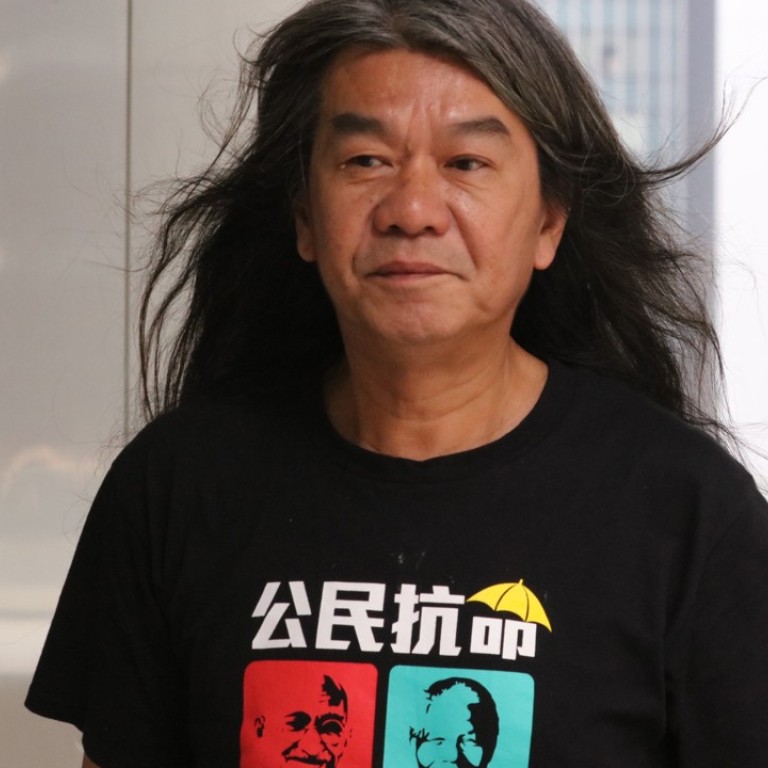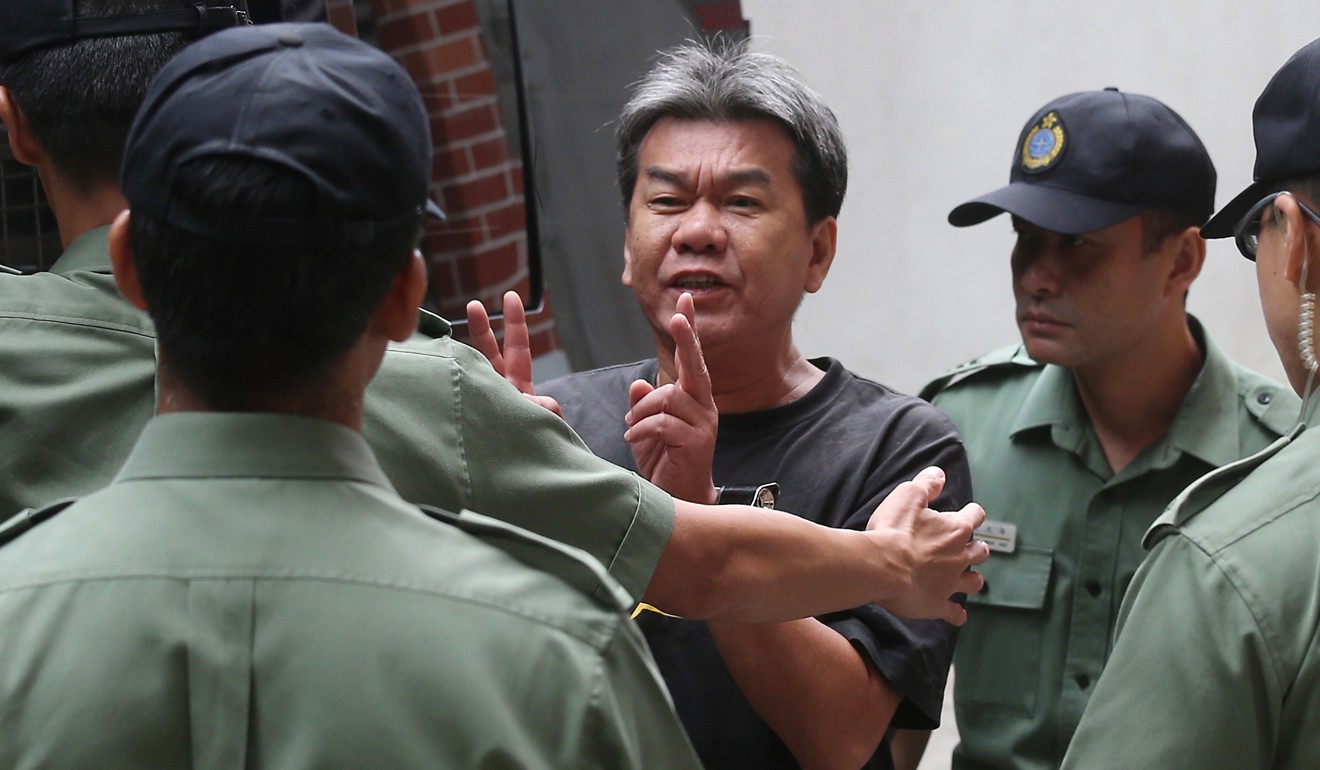
Cutting off former Hong Kong legislator’s famous long hair was not discriminatory, court rules
Leung Kwok-hung vows to take case to city’s highest court after earlier ruling in his favour overturned on appeal
Hong Kong’s prison authorities on Monday regained the power to cut male inmates’ hair, after winning an appeal against veteran politician “Long Hair” Leung Kwok-hung, whose trademark mane was removed during incarceration.
The former lawmaker would also have to pay the legal costs of the commissioner of the Correctional Services Department (CSD), who made the appeal, the Court of Appeal ruled.
Leung vowed to take the case to the Court of Final Appeal.
The High Court last year ruled in Leung’s favour, saying the different treatment was based on sex, meaning the prison authority would have to review its hair restrictions for both men and women.
Later that year, the government won an extension allowing prison officers to continue cutting male inmates’ hair until either March 31 or when the court ruled on the appeal, whichever came earlier.
In the written ruling released on Monday, Mr Justice Andrew Cheung Kui-nung said Leung’s case did not involve direct discrimination because the difference in haircut requirements stemmed from the social convention that men wear short hair and women wear either long or short hair.

“So far as direct discrimination is concerned, whilst a male inmate is indeed treated differently from a female inmate ... he is not treated less favourably than a female inmate,” Cheung said. “Both are simply required to wear a hairstyle that conforms to the conventional hairstyles for men and women in society respectively.”
Cheung said the case instead concerned indirect discrimination, because conforming to social conventions was an “inherently unfavourable criterion for men as opposed to women”, leaving men with long hair liable to have their hair cut short, while women did not have this problem.
Hair is part of our gift from God and our parents, I don’t think anyone should touch our hair without considerable legal basis
But, he added, women in social convention were more likely to wear make-up, so “probably many more female inmates will be affected by the prison requirements and restrictions”.
In this “wider, package approach”, he said, even indirect discrimination could not be established.
“Put that way, it can be seen easily that neither sex is favoured or disadvantaged in terms of this requirement to conform in terms of physical appearance,” he said.
Outside the court, Leung said he intended to appeal against the “unsurprising” ruling, but that legal fees would be a problem.
“I don’t want to go bankrupt,” he said. “I suggest the Legal Aid Department should support me since it’s not the end of the matter.”
“Hair is part of our gift from God and our parents, I don’t think anyone should touch our hair without considerable legal basis,” he added.
In a statement, the CSD said it welcomed the judgment and would “implement the policies concerned in accordance with the law”.


